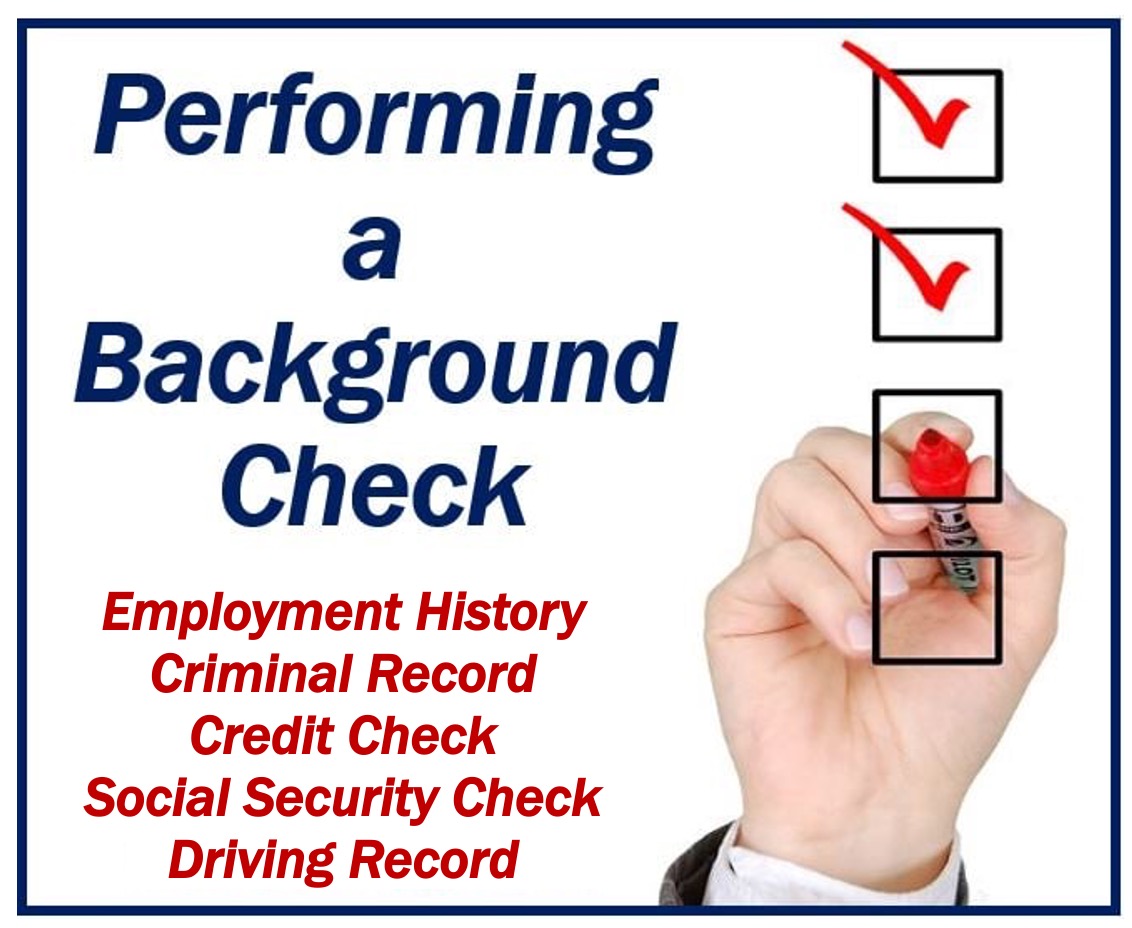A background check is a process that verifies a person’s identity, work, criminal, and educational history.
Background checks for potential employees, tenants, and members
Employers, landlords, and some associations for example, typically carry out a background check before deciding whether to hire, rent to, or accept someone as a member.
The aim is to determine how suitable that person is for a particular role or opportunity based on their past behavior, accomplishments, experience, qualifications, etc.

The information gathered and analyzed can vary, depending on the type of check, what people are looking for, and national and local laws and regulations.
A basic background check typically examines personal information, such as the person’s name, address, and date of birth. It may also include details of any criminal record or arrest history.
Comprehensive checks
Work history
A more comprehensive background check might also include employment verification, which confirms past job titles, dates of employment, and reasons for leaving. For an employer, it is crucial to know as much as possible about a candidate before deciding whether to offer them a position in the company.
Education
It is necessary to confirm all the details in a person’s curriculum vitae or resume, including their academic qualifications and where they studied. Human resource professionals, department heads, and other potential hirers need to be sure that their candidate is right for the job.
Credit rating
Landlords, banks, and other lenders need to know whether a potential tenant or borrower has a good credit history. They will look at a candidate’s credit history or credit score before deciding whether to proceed. Put simply, they need to know whether that person is creditworthy.
Some employers may also check out a job applicant’s credit history, especially if they are considering somebody for a position of trust.
Local and National Laws
Before carrying out a background check, make sure you comply to the laws of the land. In the US, for example, the Fair Credit Reporting Act (FCRA) governs how background check information can be collected and used.
The FCRA requires that whoever you are checking gives written consent. You must also let them know of any negative information you find during the process.
Conclusion
In the world of business and many other sectors, background checks are an important tool that help find out whether a person is the right one for a job, loan, association, or property rental.
They provide valuable information about a candidate’s personal, employment, criminal, and academic history. However, make sure you comply with your country’s legal requirements.
